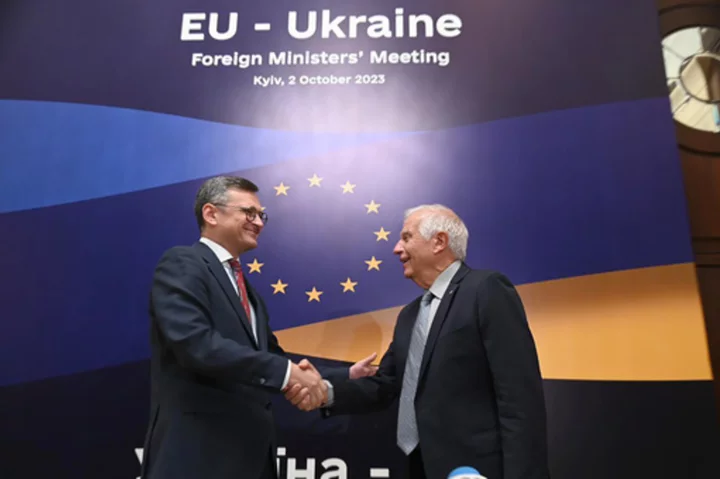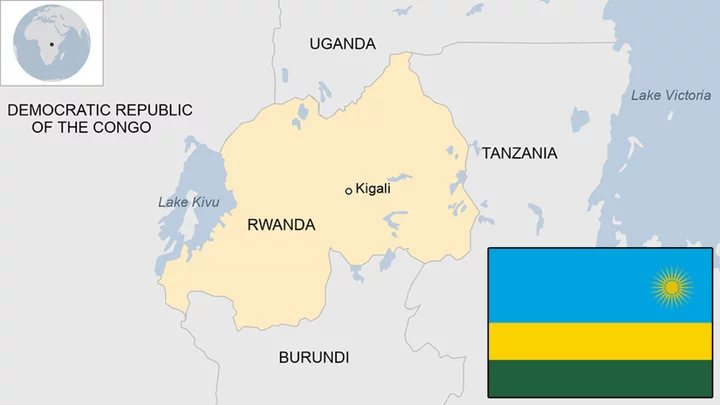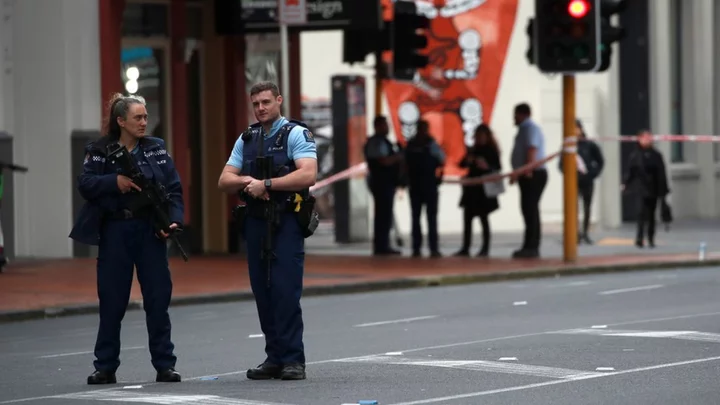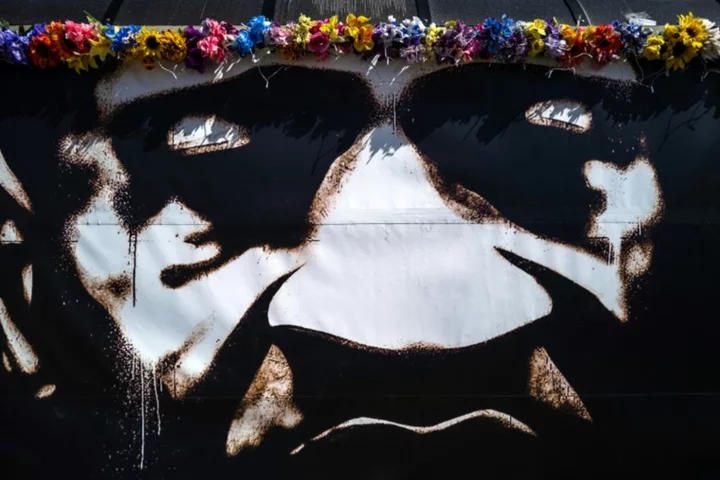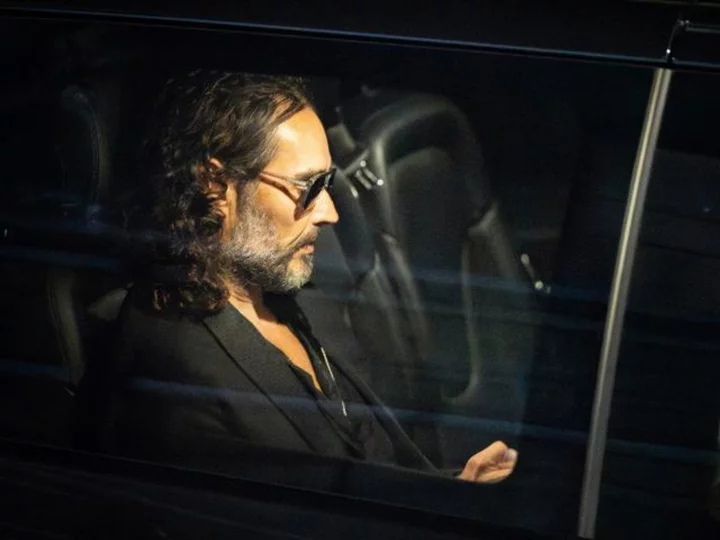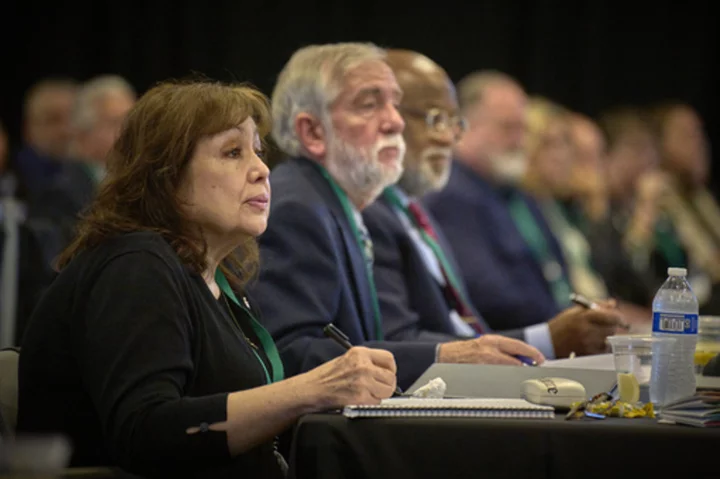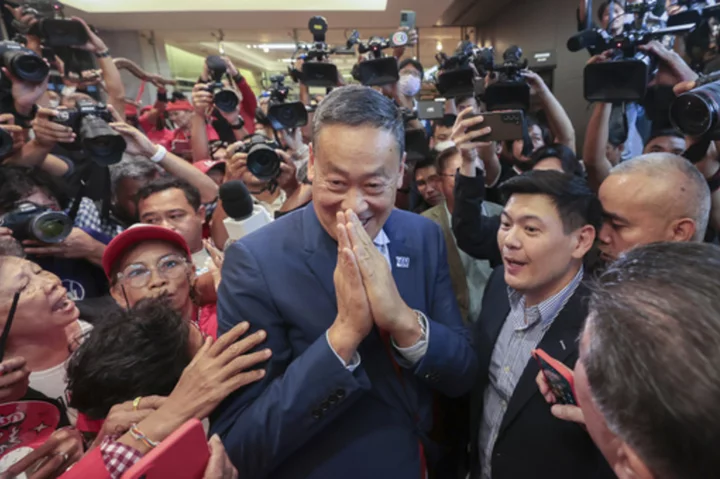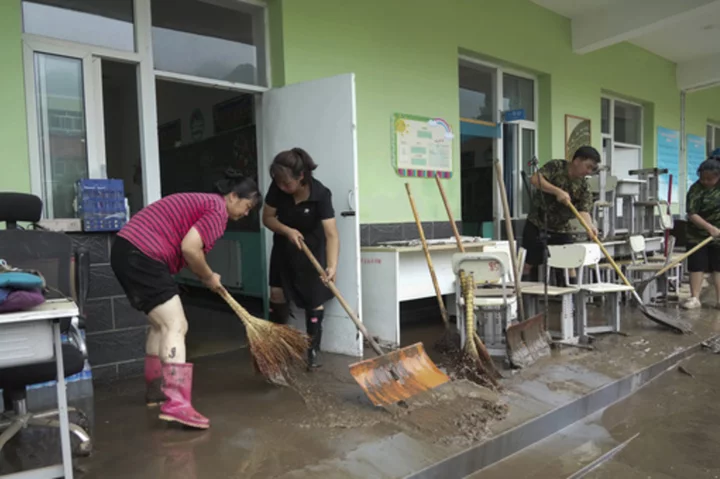KYIV, Ukraine (AP) — Some of Europe’s top diplomats gathered Monday in Kyiv in a display of support for Ukraine’s fight against Russia’s invasion as signs emerge of political strain in Europe and the United States over the 19-month-old war.
European Union foreign ministers converged on the Ukrainian capital for an unannounced informal meeting that officials said would review the bloc’s support for Ukraine and discuss Ukrainian President Volodymyr Zelenskyy’s proposed peace formula.
EU foreign policy chief Josep Borrell said the foreign ministers’ first joint meeting outside EU borders signaled that the 27-nation bloc's support is “unwavering,” and underscored the EU’s commitment to Ukraine.
The United States, the EU and the United Kingdom have provided massive military and financial support to Ukraine, enabling it to stand up to the Kremlin’s attack. The assistance is crucial for Ukraine’s weakened economy and has so far been open-ended.
But uncertainty has set in over how long Kyiv’s allies will keep sending it aid worth billions of dollars (euros).
U.S. President Joe Biden on Sunday reassured allies of continued U.S. financial support for the war effort, after Congress averted a government shutdown by adopting a short-term funding package that dropped assistance for Ukraine in its battle against Russia.
Many U.S. lawmakers acknowledge that winning approval for Ukraine assistance in Congress is growing more difficult as the war grinds on.
Ukrainian Foreign Minister Dmytro Kuleba told reporters that Ukraine held discussions with representatives of both parties in the U.S. Congress to ensure more help will arrive.
“The decision was taken as it was, but we are now working with both sides of the Congress to make sure that it does not repeat again under any circumstances,” Kuleba said.
“The question is whether what happens in the U.S. Congress last weekend is an incident or a system. I think it was an incident,” he added.
Kremlin spokesman Dmitry Peskov said Monday he didn’t doubt that Washington “will continue to be directly involved in the conflict.”
At the same time, Russian President Vladimir Putin is wagering that international support for Kyiv will sooner or later begin to flag, and Peskov said the fatigue will eventually bring “fragmentation” of Ukraine’s foreign assistance.
The largely symbolic EU meeting in Kyiv took place after the weekend election victory in EU member Slovakia of Robert Fico, whose pro-Russian agenda has increased the question marks about the EU’s continued support for Kyiv.
The small eastern European country could bring more tension to the EU’s discussions on Ukraine, as has happened with Hungary’s at-times cool attitude toward Kyiv. Budapest has maintained close relations with Moscow and argued against supplying arms to Ukraine or providing it with economic assistance. Slovakia operates a key rail line used to transport western military hardware to Ukraine.
Peskov, the Kremlin spokesman, didn’t comment directly on what Moscow expects from the new Slovak government, saying that a governing coalition is yet to be formed there.
The foreign ministers of Hungary and Poland were not at the Kyiv gathering. However, it is not unusual for diplomats to skip such informal meetings. Four of the 27 countries sent high-ranking officials instead of their diplomacy chiefs, EU officials said.
Even so, French Foreign Minister Catherine Colonna described the gathering as “an exceptional diplomatic gesture” that “shows Ukraine is part of our European family.”
Danish Foreign Minister Lars Løkke Rasmussen said Europe must be ready to provide further help “for many good reasons.”
“First of all, in order to support Ukraine, but also to send a strong trans-Atlantic signal that what’s going on on our own soil is something we have to take on a great responsibility for,” Løkke Rasmussen said.
Zelenskyy’s 10-point peace proposal includes establishing a special tribunal to prosecute Russian war crimes and building a European-Atlantic security architecture with guarantees for Ukraine.
Ukraine is bent on becoming a member of the EU, and EU officials have encouraged that course even though it could take years amid a war of attrition with no end in sight.
“With every village, with every meter that Ukraine liberates, with every meter in which it rescues its people, it is also paving its way to the European Union,” German Foreign Minister Annalena Baerbock told reporters in Kyiv.
Luxembourg Foreign Minister Jean Asselborn said Western allies must keep up the military aid “because if we don’t deliver any weapons from the EU, from NATO, from other countries, then this war is over but with the wrong consequences.”
Meanwhile, Ukraine's presidential office said Monday that over the previous 24 hours at least five civilians were killed and 13 people were hurt. Most of them in the east of the Donetsk region.
Russian attacks on residential areas of 11 cities and villages there killed three and wounded five people, it said.
The claims could not be independently verified.
___
Raf Casert in Brussels, Geir Moulson in Berlin and Yuras Karmanau in Tallinn, Estonia, contributed to this story.
___
Follow AP’s coverage of the war in Ukraine at https://apnews.com/hub/russia-ukraine

